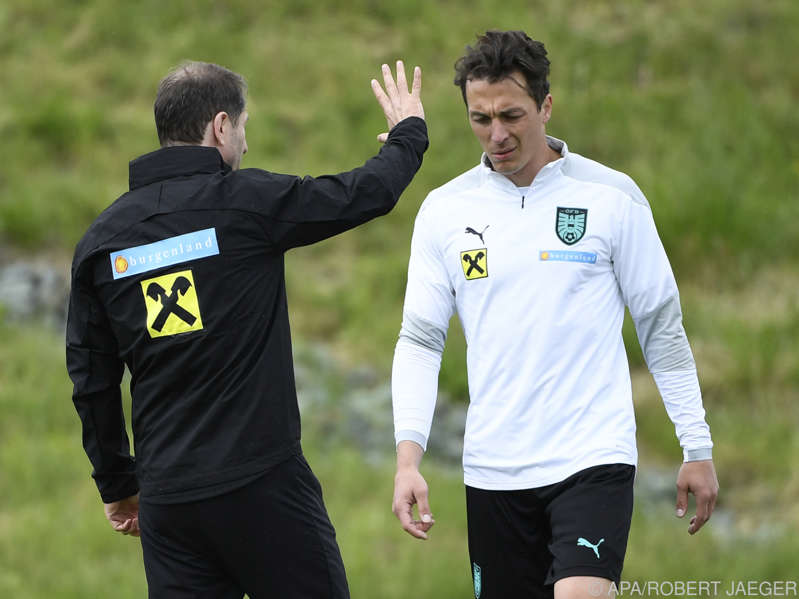
ÖFB captain Baumgartlinger sees great potential in mental training
In the constant search for ways to optimize their performance, some Austrian team players swear by mental training. For her, there is no doubt that football is primarily a matter of the mind. By working with mental trainers, a few additional percentage points should be teased out.
Aleksandar Dragovic, for example, thought relatively little of mental training for many years. When he didn't get any missions at Bayer Leverkusen in the spring, the 30-year-old changed his mind, relied on psychological support and, according to his own statements, benefited massively from it. Xaver Schlager also uses a mental trainer. “In your head you have the most potential. Physically everyone is about equally well trained, but in your head it decides. That is the most important factor,” said the Wolfsburg professional.
Captain Julian Baumgartlinger, on the other hand, is in principle open to the topic of mental training, but does not work with his own psychologist. “The good thing is that maybe I never felt the need because I wasn't blocked by negative things or fears. I never had an acute need for someone to help me.”
Christoph Baumgartner has his own method to prepare for a game on a psychological level. “I don't work specifically with a mental coach, but I've found certain processes that are important to me. Before every game, I go through scenes in my head that are sure to happen,” said the Hoffenheim professional. “I prepare myself in my head for the course of the game, for the opponent, for the opponent. Before every game, I also watch scenes of the opposing goalkeeper, what he is doing in one-on-one situations or how high he is. I understand that I also do mental training to prepare the head as well as possible for the game. “
Stefan Lainer says he rarely cooperates, but he does work with a mental trainer. “Everyone has to find their own way. Some need more, others less. From my point of view, it is crucial that you have support in your family environment and can concentrate one hundred percent on football, and that you get distracted once in a while is not going well, “emphasized the right-back.
Sasa Kalajdzic does not have a mental trainer, his crucial caregiver comes from the family. “My most important advisor is my father. He is always there for me and has always accompanied me,” said the striker. Philipp Lienhart worked as a young footballer at Rapid with a mental coach. “I took a few things with me. But I don't have a mental trainer at the moment.”
At EURO 2016 in France, the ÖFB supervisory staff included Thomas Graw, their own sports psychologist, but this position was saved under team boss Franco Foda. “Some feel better with a mental trainer, many don't need him. I don't want to force anyone,” said the coach.
Baumgartlinger can understand this approach. “Mental training is something highly individual and personal. You need a certain relationship of trust and openness in both directions. As a team, it is often difficult to work together,” explained the captain.

